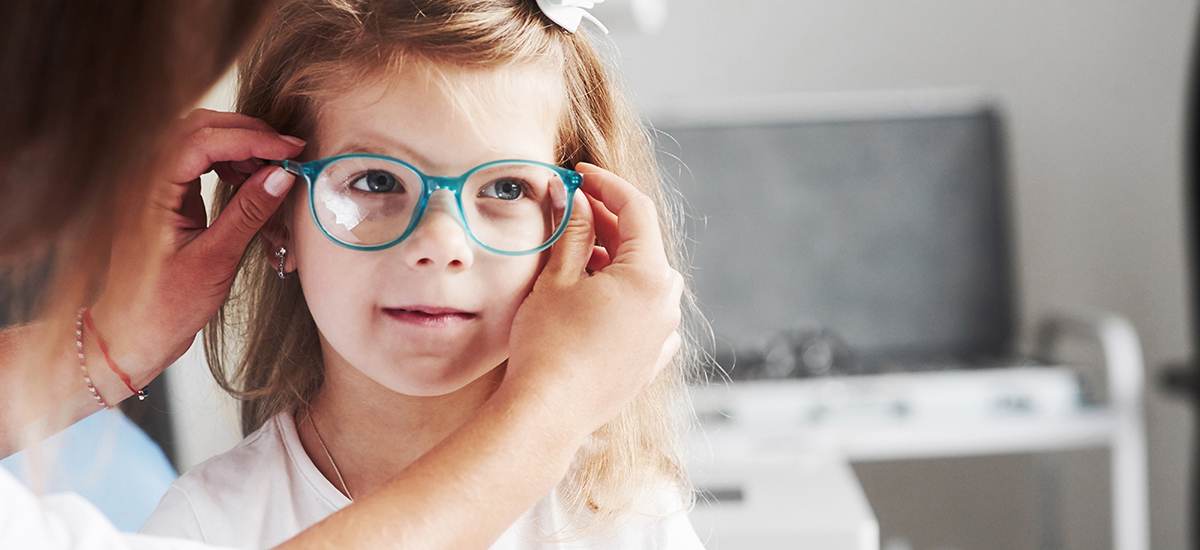Can Children’s Eyesight Improve?

When your child gets glasses for the first time or if you suspect your child has poor vision, you might wonder if children’s eyesight can improve. A child’s eyesight is constantly changing, which is why we recommend yearly eye exams.
Can children’s eyesight improve?
Your child’s eyesight can undergo many changes over time. As an infant, your child will have blurry vision and see the world as light and dark, and as they grow, their eyesight will sharpen. All of this means that, yes, your child’s vision can change for the better.
Here are some ways to help improve and preserve your child’s eyesight:
Playing outside can help improve your child’s eyesight.
A recent study shows that nearsighted children benefit from playing outside. More time spent outdoors can lower your child’s chances of needing corrective lenses.
Researchers also found that each additional hour your child spends outdoors per week could lower the risk of developing nearsightedness by up to 2 percent. Children who spend less time indoors and more time outdoors have fewer vision issues than those who don’t.
The American Optometric Association recommends that children play outdoors and do certain activities. Climbing, jogging, and playing on outdoor playground equipment can help improve your child’s eye coordination and visual clarity.
If you’re wondering how to improve weak eyesight naturally for your child, the sunlight is a good way to do that. But, it’s also essential to protect your child’s eyes from UV rays by having them wear sunglasses.
Activities and toys can help improve your child’s eyesight.
Toys and games can promote your child's eyesight development and visual acuity. Select games based on your child’s age and interests. Here are some general guidelines for each age group:
- 0 to 5 Months: Peek-a-boo, bright and squeaky toys
- 6 to 8 Months: Hide-and-seek with toys, bath toys, stuffed animals
- 9 to 12 Months: Rolling a ball to one another, blocks, books
- 1 Year Old: Playing with toys they can move with their feet, blocks, colored balls
- 2 Years Old: Sorting games, blocks, puzzles, coloring
- 3 to 6 Years Old: Finger painting, making bracelets, chalk
- 7 Years Old and Up: Building games, bike riding, rollerblading
These activities and toys can help improve your child’s eye coordination skills, which can result in higher academic and athletic performance. They can also enhance your child’s ability to memorize what they read via eye tracking.
Taking a break from digital devices can help improve your child’s eyesight.
Around 83 percent of children between ages 10 and 17 spend over three hours per day on digital devices. Excess screen time can result in digital eye strain, which can cause concentration issues, eye fatigue, and headaches.
Children should use the 20-20-20 method to rest their eyes and take a break from digital devices. This means your child should take a 20-second break every 20 minutes, and view something 20 feet away. Limiting screen time can also lead to more time in the sunlight, which can help improve children’s eyesight.
Summary: Can children’s eyesight improve?
Your child’s eyesight can improve. Visual skills can develop through easy, natural methods. For instance, you can encourage your child to spend more time outdoors and in the sunlight, play with stimulating toys, and take regular breaks from digital devices.
If these methods don’t work, an eye exam can help an optometrist determine if glasses are needed.
Book your eye exam at For Eyes
Have you had your annual comprehensive eye exam? Schedule an appointment with an Independent Doctor of Optometry at your local For Eyes.







